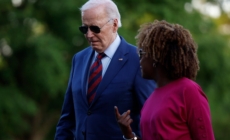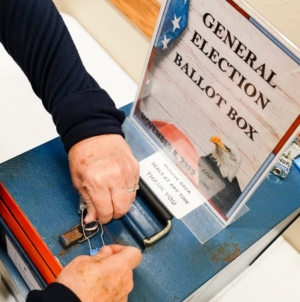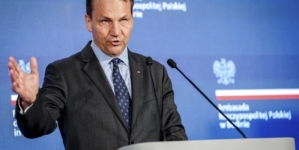-
Thousands of Potential Noncitizens Found On Texas Voter Rolls - 6 mins ago
-
Wild bear breaks into California zoo, is found communing with the captive bears - 27 mins ago
-
Nations Hesitate to Send Troops to Gaza, Fearing Clashes With Hamas - 37 mins ago
-
Poland issues Putin arrest warning ahead of Trump meeting - 41 mins ago
-
L.A. City Council candidate to be fined $17,500 for ethics violation - about 1 hour ago
-
Map Shows Chinese Cargo Ship in New Arctic Sea Route - about 1 hour ago
-
Judges Warn of ‘Judicial Crisis,’ and Universities Reject Trump Offer - about 1 hour ago
-
‘Abandoned’ Cat Enters Stranger’s Home, Demands Pets for Over 1 Hour %%page%% %%sep%% %%sitename%% ‘Abandoned’ cat enters stranger’s home, demands pets for over 1 hour - 2 hours ago
-
Trump’s Self-Inflicted Soybean Problem - 2 hours ago
-
Karine Jean-Pierre on Democrats and Concerns About Party’s Future - 2 hours ago
Trump’s Peace Plan Puts Netanyahu’s Political Survival Skills to the Test
With so much of the legacy of Israel’s longest-serving leader now tied to the nation’s lengthiest and deadliest war, Prime Minister Netanyahu now faces risks and opportunities as a new deal backed by the White House offers a path to peace in Gaza, this time with international backing.
Such an outcome is far from guaranteed, particularly as many anticipate that the Palestinian Hamas movement, with which Israel has been at war with for two years, is unlikely to accept the proposal. Hamas’ refusal risks further isolating the group but may also fail to ease mounting pressure on both Netanyahu and President Donald Trump to resolve the conflict.
Yet even in the event that Hamas greenlights the U.S. plan, Netanyahu’s troubles would not be over.
The Israeli premier’s ruling coalition includes far-right members, namely National Security Minister Itamar Ben-Gvir and Finance Minister Bezalel Smotrich, who have previously threatened to withdraw from government in protest of ceasefire deals. Netanyahu also continues to face an ongoing corruption trial, challenges to policies and questions over the intelligence failures that led up to Hamas’ initial October 2023 attack, all of which may surface in a post-war scenario.
In any case, Israeli experts and former officials say history has proven Netanyahu’s skills as a political survivor as the ex-commando-turned-wartime leader takes on a historic set of challenges perhaps only he could overcome.
“If, indeed, this transaction goes ahead, Hamas approves it, and everything falls into place, hostages are released, so on and so forth—which is promptly hard to believe, but assuming it does happen—people assume that in this case, Smotrich and Ben-Gvir will immediately leave the coalition,” Eran Etzion, former deputy head of Israel’s National Security Council and head of policy planning at the Israeli Foreign Ministry under Netanyahu, told Newsweek.
“I don’t think it’s that obvious or automatic.”
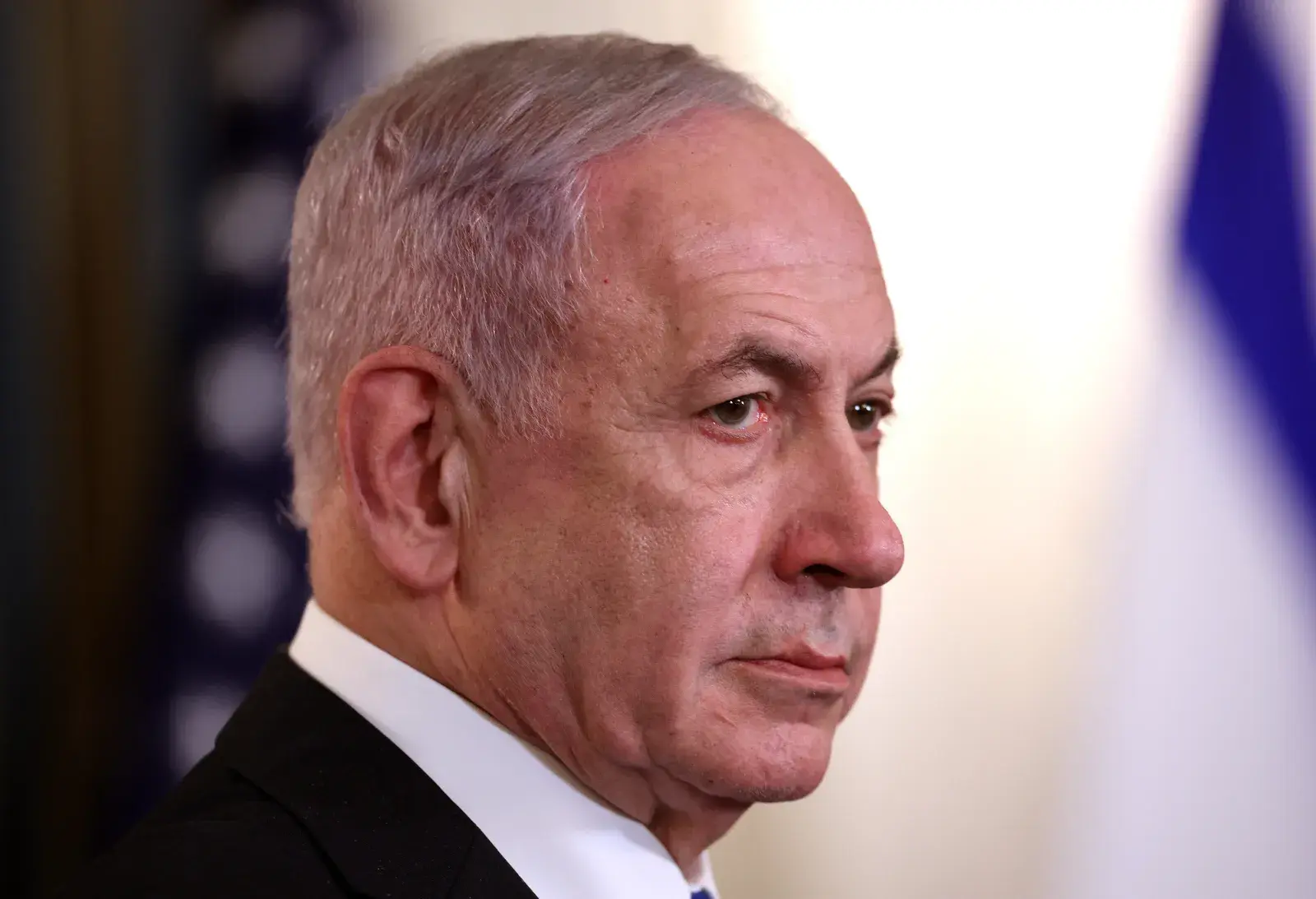
‘Well-Played’
The first front on which Netanyahu has already begun to strike is through the deal itself. The 20-point peace plan shared with Israel and Arab partners last week and unveiled by the White House on Monday marks the most comprehensive proposal on the fate of Gaza to date.
The agreement importantly addresses Netanyahu’s three overarching wartime goals by putting an end to Hamas’ government in Gaza, releasing the 48 hostages still believed to be held by the group and rendering the coastal Palestinian territory a demilitarized and “deradicalized” zone. The withdrawal of Israeli forces, the deployment of an international peacekeeping force and the eventual transfer of power to the Palestinian National Authority (PA) appear largely to be subject to considerations by Netanyahu and Trump, who will chair a committee of Palestinian experts tasked with temporary governance of Gaza.
And with only passing reference to setting conditions that may set the stage for a renewed talks geared toward Palestinian statehood, the agreement differs from the joint initiative recently outlined by France and Saudi Arabia — though it is reference in Trump’s proposal. Their plan places greater priority on the path to an internationally recognized Palestinian state and encompasses issues pertaining to the West Bank as well.
In this respect, Etzion said that Netanyahu, though having backed Trump’s deal under pressure, was also seeking to ensure Israel retained the reins of the peace process.
“If it wasn’t for the very hard pressure, both from Trump and also from the international community, the Saudi-French initiative and the declaration and recognition of the Palestinian state, and the overall kind of increased diplomatic and economic isolation of Israel, which was gaining unprecedented momentum, he would not have signed this agreement for sure,” Etzion said. “However, he also used this agreement in order to try and kind of counter the international pressure.”
“To put it more simply, the whole notion of this agreement, or the kind of the strategy behind it is to try and snatch the Arabs, the Saudis, the Qataris, the UAE, Egypt and Jordan, kind of move them from the Saudi-French initiative to the Trump plan,” he continued. “Now, even though they haven’t officially abandoned the Saudi-French initiative by siding with the Trump plan, it kind of shifts the momentum from the first to the latter, and actually, it was well-played by Netanyahu.”
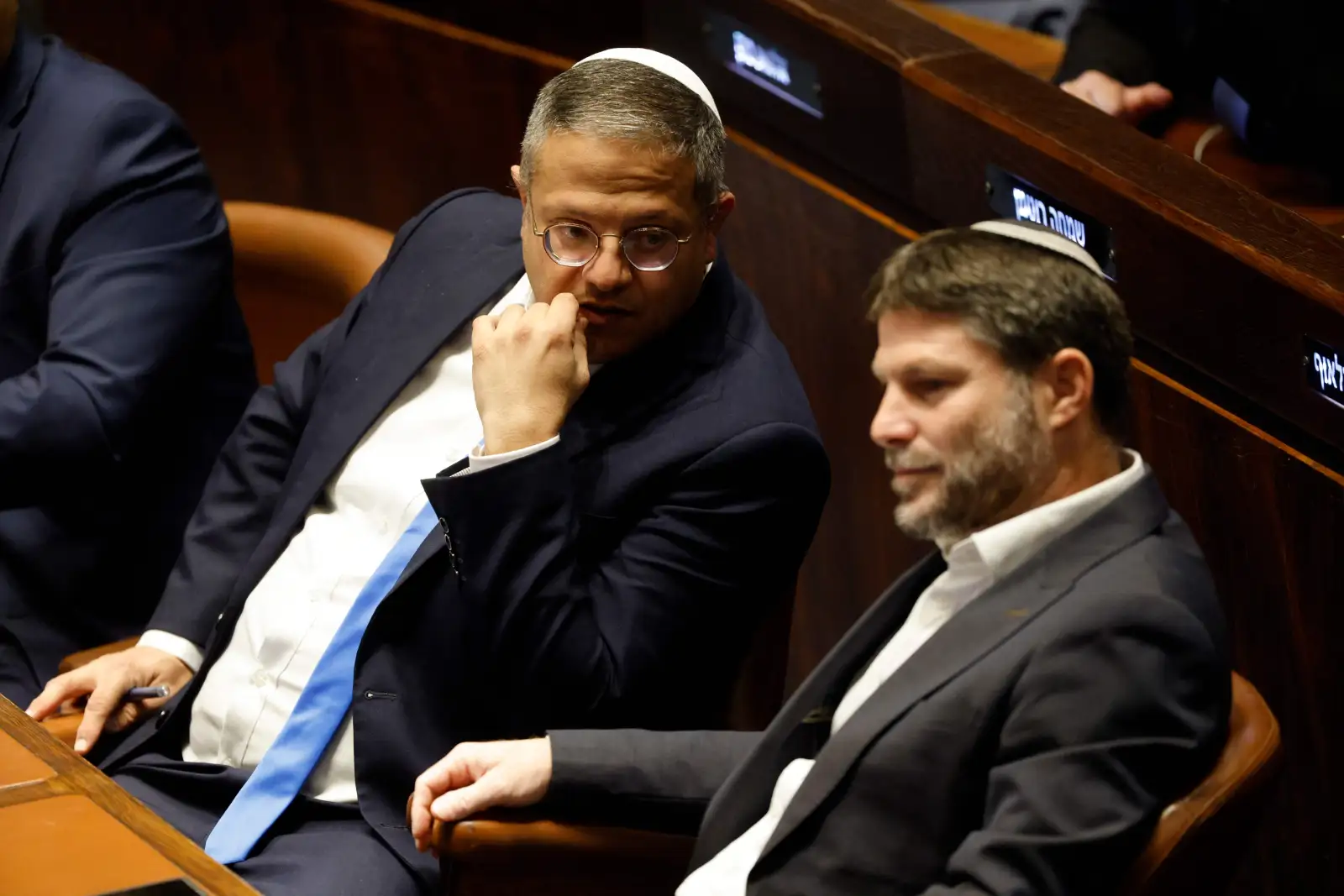
Netanyahu’s ‘Safety Net’
Whether or not this play, and potential additional amendments put forth, will be sufficiently appreciated by Netanyahu’s far-right allies to prevent a government collapse remains to be seen.
Some, such as Yoel Guzansky, senior researcher at the Institute for National Security Studies who previously served on Israel’s National Security Council and as adviser to several premiers, view the unraveling of the coalition as likely should the deal go through.
But even if this scenario, Netanyahu has a back-up plan in the form of a promise by his political opposition, led by Yair Lapid, to shore up the government in support of a deal. Etzion calls it a “safety net,” as does Guy Ziv, associate director of American University’s Meltzer Schwartzberg Center for Israel Studies.
Ziv said that the Trump plan enjoyed broad backing from within Israel at a time when war fatigue is building, thus making it politically difficult to oppose — even for the ultranationalists.
“The Trump plan addresses Israel’s war aims: dismantling Hamas as a military and governing entity in Gaza, securing the release of all the hostages, and preventing future security threats from Gaza,” Ziv told Newsweek. “It has the backing of the Israeli public, which overwhelmingly supports the plan and is eager to see an immediate end to this two-year devastating war.”
“Netanyahu’s far-right coalition partners are opposed to this plan, having advocated for West Bank annexation and rebuilding settlements in Gaza – neither of which the agreement permits,” he added. “As frustrated as they are, though, they’re going to think twice before they bolt the coalition.”
Meanwhile, Ziv added, “Netanyahu, for his part, will do his utmost to avoid early elections, prioritizing coalition preservation above all else.”
Nimrod Novik, fellow at the Israel Policy Forum and who previously served as senior adviser to former Israeli Prime Minister Shimon Peres, came to a similar conclusion regarding Netanyahu’s far-right coalition partners.
He noted that Ben-Gvir and Smotrich would need take into account their own shaky political ground even if “the prescribed end of war, eventual involvement of the Palestinian Authority in Gaza, and a potential future two-state solution – each separately, but even more so jointly – cross redlines of the Netanyahu more extreme coalition partners.”
“By all polls, certainly since October 7, 2023, those coalition partners face defeat in elections – whether held early or late in 2026,” Novik told Newsweek. “One must assume that they will not take lightly a decision to expedite their departure – likely, for a long time – from ministerial positions that they cherish. Consequently, I believe that the decision rests with Netanyahu, not them.”
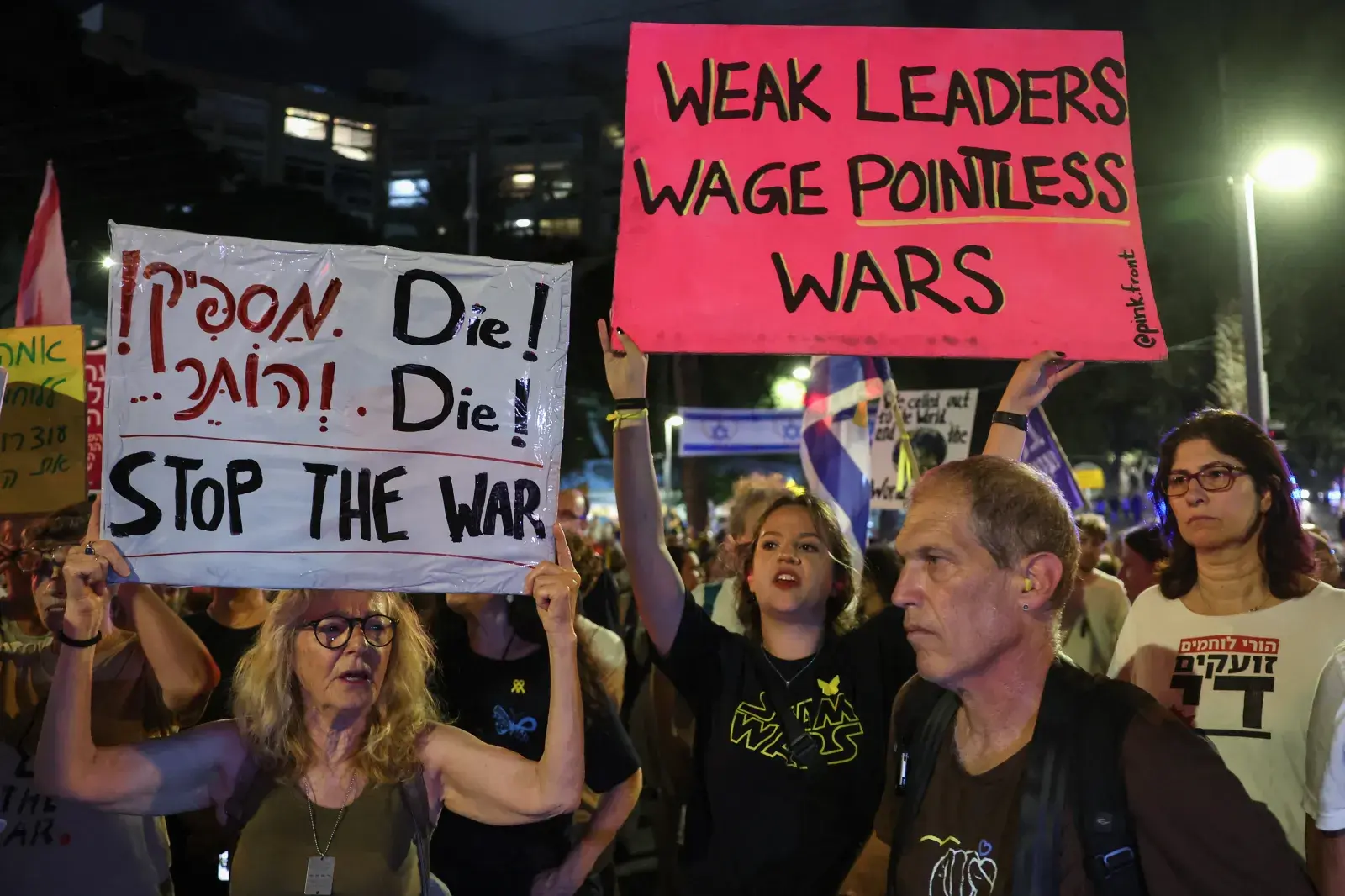
A Legacy on Trial
On the other hand, Novik suggested that Netanyahu may indeed opt for early elections in the event of a successful peace deal, “while the impact of his achievement in ending the war and securing the return of all hostages is vivid, and before they are overshadowed by unexpected negative developments.”
With the international community largely fixated on the scenes of death and destruction emanating from the ongoing operation in Gaza that has now spread to multiple other countries across the Middle East, Netanyahu is also wrangling with a growing series of pitfalls at home that could threaten to undermine his administration.
For one, the Israeli premier has been on trial for five years on charges of bribery, fraud and breach of trust. Netanyahu has repeatedly sought to delay the proceedings and apply for immunity, which has been denied by Israel’s Supreme Court despite public support from Trump.
Additional cases may be brought up as well, including the so-called “submarine affair” through which Netanyahu stands accused by a state commission of bypassing official channels to upgrade Israel’s underwater fleet with German vessels. Another scandal, known as “Qatargate,” is gaining momentum, too, with Netanyahu’s close advisers alleged to have been paid by Qatari officials to promote the country’s interests.
And as for the war itself, questions persist over the lack of preparedness under Netanyahu’s leadership that allowed Hamas, on an early Saturday morning nearly two years ago, to suddenly overwhelm with ease what was thought to be one of those most closely surveilled and heavily defended barriers on Earth.
“With the war’s conclusion, pressure for a state commission of inquiry into the October 7 failures will intensify significantly, making it difficult for Netanyahu to resist,” Ziv said. “However, he’ll likely push to influence the commission’s composition, mandate, and scope, which could compromise its independence.” As for his legal challenges, he will continue his practice of requesting postponements based on his diplomatic trips, health, and the elusive ‘security’-related pretexts.”
“The coming months will be crucial for his legacy, which will be shaped by the post-war developments in Gaza and elsewhere in the region,” he added. “While he can point to the Abraham Accords and perhaps additional diplomatic achievements, October 7 will cast a long shadow over his legacy.”
Novik argued that how Netanyahu fares in elections may ultimately dictate his ability to stay afloat under the weight of these ongoing, simultaneous inquiries.
“Should Netanyahu win the next elections, he can be expected to remain focused on preventing two processes from reaching their logical conclusion,” Novik said. “First, his trial for corruption. Second, an impartial investigation of his decade-long strategy of sustaining Hamas control over Gaza prior to October 7, the colossal failure on that day, as well as his government being MIA for months, when needed most after the trauma.”
“Should he lose the elections, he loses control over both,” he added. “Many will not be surprised if he tries for a ‘sweet’ plea deal (that is, with no time served) regarding the former but will have no say on the latter.”
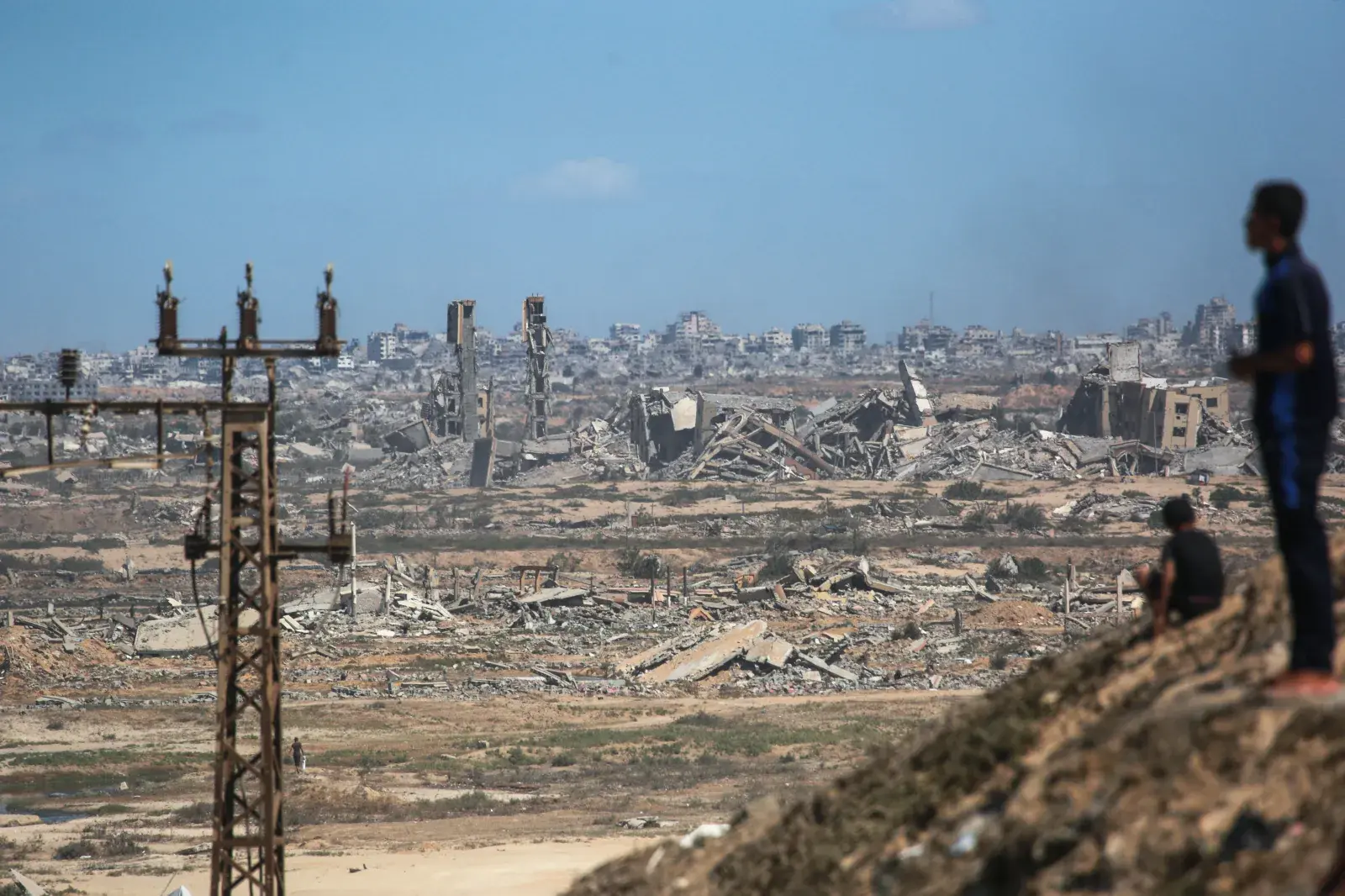
In Hamas’ Hands
But the blame for the bloody blindspot that was October 7 does not rest solely with Netanyahu. A number of top military and intelligence officials have already stepped down as a result of the security blunder and accusations continue to be traded across various levels of leadership over how to proceed with a dedicated inquiry.
“The national camp wants a commission that’s made up of a broad range of representatives,” Ruthie Blum, a senior contributing editor and columnist at the Jewish News Syndicate who previously served as an adviser to Netanyahu’s office, told Newsweek. “The opposition wants a commission run by the Supreme Court, which is just as responsible for those failures as everybody else.”
But it’s neither this nor the outcome of the peace deal that Blum felt was the biggest threat to Netanyahu’s leadership, which she said was otherwise bolstered by recent events.
“Whether or not Hamas agrees to the plan, Netanyahu’s position at home was strengthened by his visit to the U.S.; his address to the UNGA; and certainly, by his meeting and joint announcement with Trump,” Blum said. “It’s not likely that his coalition will fall as a result of the plan; it’s expected to fall when the government fails to pass a budget.”
But Hamas does have a key say in what happens next in the war, thus giving it an indirect role in shaping Netanyahu’s future.
“The larger question is what happens if Hamas doesn’t agree to the plan–or agrees and only releases a few hostages,” Blum said. “Will Netanyahu be able to go full force in Gaza City? Will the families of the hostages block roads and accuse him of being responsible for killing their loved ones?”
“The fact that the Arab countries are behind the plan and pressuring Hamas is new and encouraging,” she added. “But Hamas still holds the leverage — as it knows that Israel doesn’t want to risk the lives of the hostages.”






